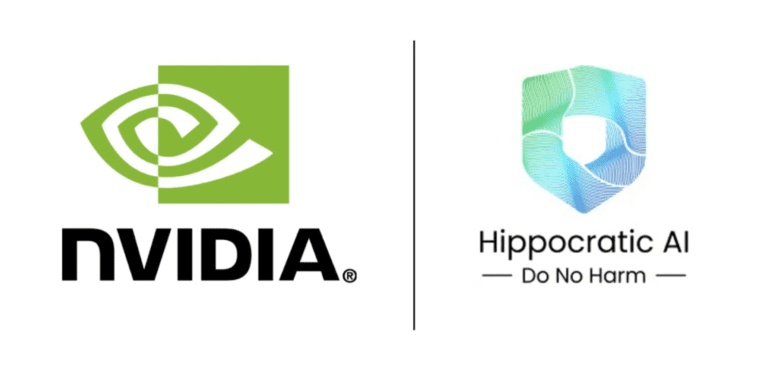- NVIDIA forms a strategic alliance with Hippocratic AI, focusing on safety-centric LLM for healthcare.
- NVIDIA provides hardware and technical infrastructure for the deployment of Hippocratic AI’s Polaris LLM.
- Primary application: AI-driven digital nursing solutions to address healthcare professional shortages and reduce operational costs.
- Potential cost savings of under $9 per hour through virtual nursing agents.
- AI nursing agents outperform human counterparts in specific performance metrics, especially medical knowledge.
- Deployed in telehealth environments for routine assessments like risk evaluations, preoperative consultations, and regular checkups.
- Concerns include misinformation dissemination risk, erosion of human touch, latency, accuracy, and data security.
Main AI News:
NVIDIA recently unveiled a strategic alliance with Hippocratic AI, a pioneering startup dedicated to crafting a safety-centric LLM tailored for the healthcare sector. Under this collaboration, NVIDIA assumes the role of the provider of cutting-edge hardware and technical infrastructure necessary for the deployment of Hippocratic AI’s groundbreaking Polaris LLM. The primary application of this sophisticated model lies in the development of AI-driven digital nursing solutions.
In response to the escalating demand for healthcare professionals, both entities are steadfastly engaged in the development of a novel product aimed at addressing this pressing need while concurrently curbing operational expenses through the digitalization of select job functions. According to Hippocratic AI’s analysis, the utilization of these virtual agents could potentially yield cost savings of under $9 per hour. Preliminary trials have demonstrated the superior performance of AI nursing counterparts over their human counterparts in specific performance metrics, particularly in the realm of medical knowledge. These AI-powered healthcare agents are currently being deployed within telehealth environments, catering to patients seeking routine assessments such as risk evaluations, preoperative consultations, regular checkups, and more.
Nevertheless, despite the undeniable benefits of leveraging digital nursing solutions, apprehensions persist. Chief among these concerns is the looming specter of misinformation dissemination; should a digital nurse inadvertently propagate erroneous information, the repercussions for the patient could be grave. Furthermore, there exists a legitimate apprehension regarding the erosion of the human touch inherent in traditional healthcare interactions. From a technical standpoint, ensuring minimal latency is imperative, while responses must be not only accurate and pertinent but also tailored to the individual patient’s needs. Additionally, safeguarding the confidentiality and integrity of patient data demands the implementation of the most robust security protocols available.
Conclusion:
The collaboration between NVIDIA and Hippocratic AI represents a significant advancement in healthcare, promising cost-effective solutions to address staffing shortages and improve patient care. However, it also underscores the importance of addressing challenges related to misinformation, human touch, and technical reliability. For the market, this signals a shift towards AI-driven innovations in healthcare delivery, with opportunities for companies to invest in and develop cutting-edge solutions while prioritizing data security and patient welfare.

